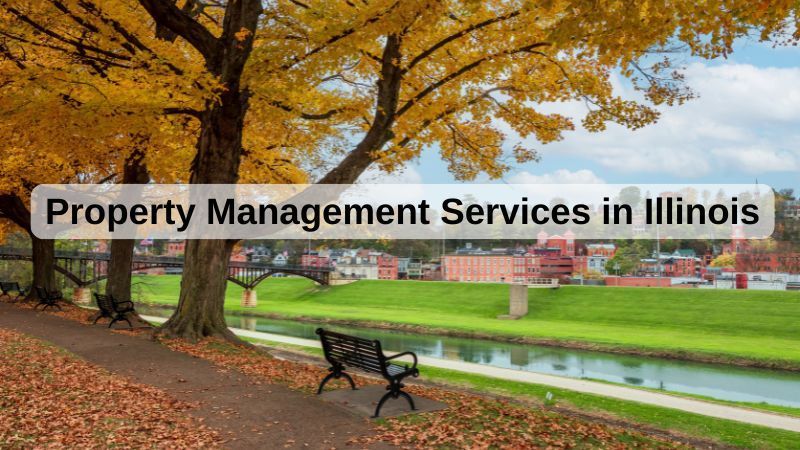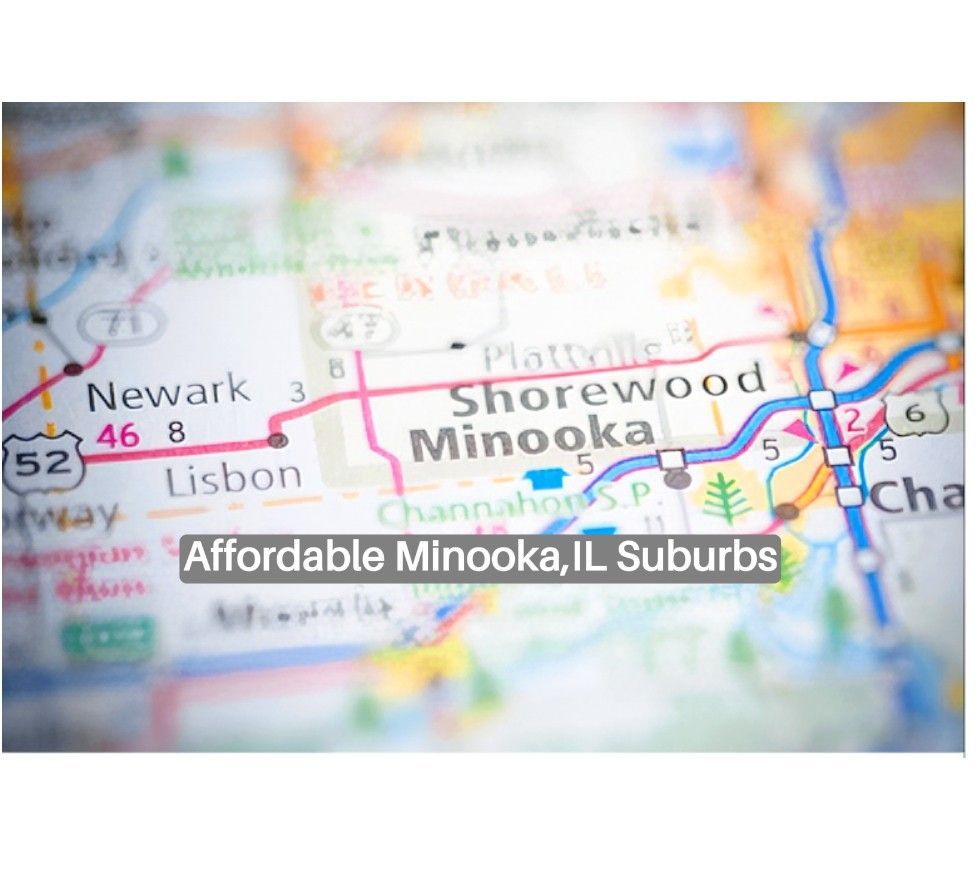Become an Illinois Resident Easily

Moving to a new state is a significant life event, and we at Fly Guy Moving in Elmhurst, IL, are here to help you every step along the way. Whether you're moving for a job, school, or a fresh start, establishing your legal residency in Illinois is an essential milestone. This comprehensive guide will cover all you need to know about becoming an Illinois resident.
Understanding Illinois Residency Requirements
Becoming a resident of Illinois means that you need to meet specific legal requirements and understand what constitutes residency in the state. Broadly defined, you are considered a resident if you intend to reside in Illinois permanently or for an extended period. Here are some key aspects to know:
Legal Definitions and Distinctions
- Domicile: This is your permanent home. You do not need to own the home but must treat it as your base.
- Residency: Temporary residence can still qualify you as a resident if you plan to live in Illinois for a minimum fixed period.
- Intent: Demonstrating the intention to make Illinois your home is crucial. Actions such as registering to vote and updating your driver’s license can indicate intent.
Necessary Documentation
When establishing residency in Illinois, having the right documentation is vital. This not only confirms your identity but also provides proof of your new residence. Here’s what you’ll need:
Proof of Residency
You will need to provide various documents to prove you live in Illinois. Most typically, these documents may include:
- Lease agreements: A signed lease agreement if you’re renting.
- Utility bills: Recent bills for utilities like electricity, water, or internet showing your new Illinois address.
- Bank statements: A bank statement with your Illinois address can also be useful.
Identification
Your identity needs to be confirmed through valid ID documents. Common forms of identification include:
- State ID vs. Driver’s License: You'll need to get an Illinois State ID or driver's license.
- Passport: A passport is often needed for identification, especially for those moving internationally or without a U.S. state ID.
Social Security Number
Having a Social Security Number (SSN) is crucial for many processes, including applying for jobs and opening a bank account. If you don’t have one, you’ll need to visit a Social Security office to apply.
- Why it's important: Your SSN is used for tax purposes and accessing government services.
- How to obtain one: Complete Form SS-5 and submit it at a Social Security office, along with proof of identity and other required documents.
Finding a Place to Live
Illinois offers a wide array of housing options. Depending on your preferences, you can choose to rent or buy a home. Here’s what you need to know about each option:
Renting vs. Buying a Home:
- Renting: Leasing an apartment or house can be a flexible option if you’re not ready to commit to purchasing property. Look for rental agreements that fit your budget and lease terms that suit your needs.
- Buying: If you're planning a long-term stay, buying a home might be more beneficial. Consider the local housing market, mortgage rates, and neighborhood amenities.
Registering Your Vehicle
If you own a vehicle, you will need to register it in Illinois. Here’s how:
Obtaining an Illinois Vehicle Title:
- Visit the Illinois Secretary of State’s office.
- Provide your current vehicle title, proof of residency, and proof of identity.
- Complete the Vehicle Transaction Form and pay the applicable fees.
Updating Your Driver’s License:
- You must update your driver's license to reflect your new Illinois address.
- Visit the nearest DMV with your current license, proof of residency, and identification.
Voter Registration
Registering to vote is a civic duty and an essential part of establishing your residency:
How to Register:
- Visit the Illinois Board of Elections website and complete the online registration form.
- Alternatively, register in person at your county clerk’s office or when obtaining your driver’s license.
Selective Service Registration
If you are a male aged 18–25, you are required to register for the Selective Service:
Requirements:
- Registration is mandatory and can be done online at the Selective Service System website.
- You may also register when applying for a driver’s license or through high school registration programs.
Healthcare
Illinois offers a range of healthcare options, both private and public. Here's how to get enrolled:
Applying for Health Insurance:
- Marketplace Plans: You can find various health insurance plans via the Illinois Health Insurance Marketplace during open enrollment periods or special enrollment periods.
- Employer-Sponsored Plans: If you have a job that offers health insurance, check with your employer for details on enrollment.
- Illinois-Specific Healthcare Programs:
- Medicaid: For those who qualify based on income, Illinois Medicaid offers comprehensive health coverage. Apply online via the Illinois Department of Healthcare and Family Services website.
- All Kids Program: This program provides healthcare to children under 18 whose families meet specific income criteria.
Educational Institutions
Education is another critical concern, especially for families. Here’s how to manage school enrollment in Illinois:
- Enrolling Children in School:
- Public Schools: Find your local public school district and contact them for enrollment info. You’ll likely need proof of residency, your child’s birth certificate, and immunization records.
- Private Schools: Research private school options and contact them directly about enrollment procedures.
- Continuing Education Opportunities for Adults:
- Illinois has multiple community colleges, universities, and vocational schools if you’re considering continuing your education. Visit their websites to learn about admission requirements and application deadlines.
Job Search Tips
Illinois has a diverse job market with opportunities in various industries. Here are some tips for finding employment:
- Utilizing Local Job Boards:
- Websites like IllinoisJobLink.com and Indeed can help you find local job listings.
- Many local newspapers also have job sections that can be a valuable resource.
- Networking in Illinois:
- Join local networking groups or professional associations.
- Attend job fairs and community events to meet potential employers and build connections.
Employment Documentation
Ensure you have the necessary documents to apply for jobs and meet state employment regulations:
- Completing I-9 Form:
- This form verifies your ability to work in the U.S. and is required by all employers.
- Have documents like your passport or Social Security card and driver’s license ready.
- Understanding State Employment Laws:
- Familiarize yourself with Illinois’s labor laws, such as minimum wage, overtime, and worker’s rights.
- The Illinois Department of Employment Security (IDES) website is a useful resource for this information.
Banking
Setting up your financial accounts in Illinois will make managing your finances more convenient:
- Opening a Bank Account in Illinois:
- Research local banks and credit unions to find one that meets your needs.
- Visit a branch with required identification documents such as a state ID and proof of residency to set up your account.
- Transferring Accounts to Local Banks:
- If you are transferring from an out-of-state bank, coordinate the transfer of your funds and close old accounts.
- Ensure any direct deposits or automatic payments are updated to your new account information.
Tax Considerations
Illinois has its own tax regulations, and it’s essential to comply with state requirements:
- Illinois State Tax Registration:
- If you are employed, your employer will typically handle state tax withholdings.
- If you are self-employed or need to register a business, visit the Illinois Department of Revenue website for guidance on registering and paying state taxes.
- Filing State Taxes:
- Illinois requires residents to file state income tax returns. Use forms provided on the Illinois Department of Revenue website.
- Keep all your documents, such as W-2s, 1099s, and other relevant paperwork, organized to ensure a smooth tax filing process.
Frequently Asked Questions about Becoming an Illinois Resident
- How long do I have to live in Illinois to become a resident? A: The specific requirement can vary, but generally, you need to show an intention to live in Illinois permanently or for a significant period. Actions like registering to vote can help establish intent.
- What is the easiest way to prove my residency? A: The most straightforward proofs of residency are utility bills, lease agreements, and bank statements with your new Illinois address.
- Can I register my vehicle online? A: While some parts of the process can be started online, you will typically need to visit an Illinois Secretary of State office to complete vehicle registration.
- How do I register to vote? A: You can register to vote online through the Illinois Board of Elections, in person at your county clerk’s office, or when obtaining your driver’s license.
- Do I need to change my bank account when moving to Illinois? A: While it’s not mandatory, having a local bank account can ease your financial transactions and day-to-day banking needs.
How Fly Guy Moving Can Help
At Fly Guy Moving, we understand that moving to a new state can be overwhelming. Here’s how we can make your transition as smooth as possible:
- Moving Services: From packing and transportation to unpacking, we handle it all.
- Personalized Support: We tailor our services to meet your specific needs, ensuring a stress-free moving experience.
- Local Expertise: With our deep knowledge of Elmhurst and the surrounding areas, we provide valuable insights and tips for your new home.
Related Blog Posts



We offer complete moving services for any Illinois resident. Whether you’re looking for local movers or specialty movers, we are your best bet!
Links
We offer complete moving services for any Illinois resident. Whether you’re looking for local movers or specialty movers, we are your best bet!
Links
© Copyright 2025 | All Rights Reserved |
Fly Guy Moving | IL.C.C. 225813
